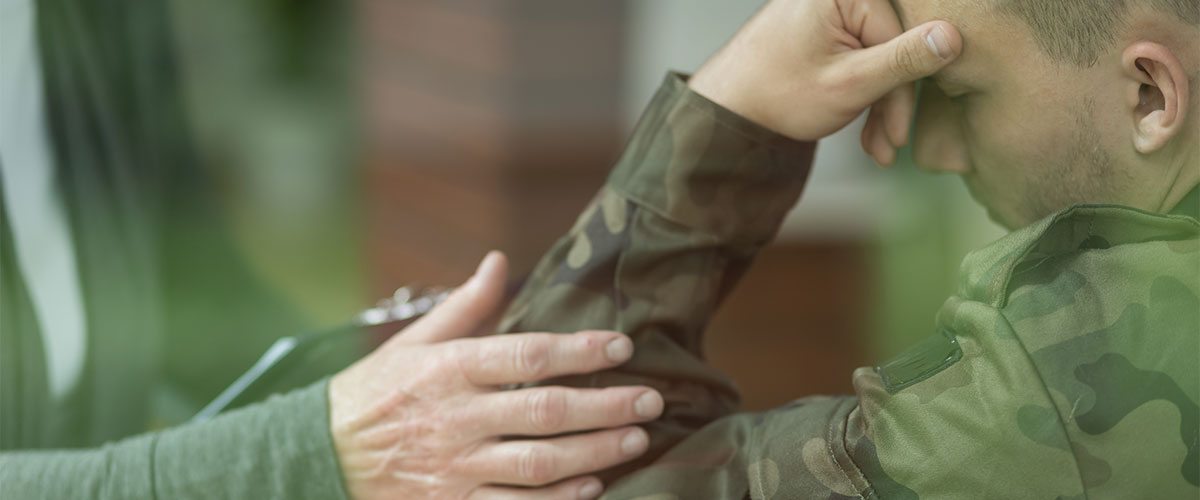[vc_row][vc_column][vc_column_text]
The American Legion publicly urged the Drug Enforcement Administration to reschedule cannabis so that more research could be done on marijuana’s effects on veterans with post-traumatic stress disorder and traumatic brain injuries.
The largest wartime veterans organization in the United States made a public call for Congress to amend its marijuana laws and to recognize cannabis’s medicinal properties. The organization, which represents 2.4 million military veterans, passed its new policy position at the organization’s national convention earlier this month.
“It’s a tool in a toolbox,” said William Detweiler, chairman of the American Legion’s traumatic brain injuries (TBI) and post-traumatic stress disorder (PTSD). “We’re not advocating the use of marijuana or any other drugs,” but veterans “have a right to anything that may help them”.
PTSD is a mental condition associated with flashbacks, severe anxiety and nightmares following the experience of a traumatic event. A TBI is a brain injury caused by a blow to the head that disrupts normal function of the brain.
There’s a high prevalence of PTSD and TBI among veterans that have seen combat. According to the Department of Veterans Affairs, about 11 to 20 percent of American veterans that served in Operations Iraqi Freedom (OIF) and Enduring Freedom (OEF), and about 12 percent of Gulf War veterans, have PTSD in a given year. An estimated 60 to 80 percent of soldiers with other blast injuries may also have traumatic brain injuries, and 22 percent of all combat casualties are caused by brain injuries.[/vc_column_text][/vc_column][/vc_row][vc_row][vc_column][vc_single_image image=”17313″ img_size=”1200×250″ onclick=”custom_link” link=”https://www.medicalmarijuanainc.com/education/#cannabis-legality”][/vc_column][/vc_row][vc_row][vc_column][vc_column_text]Although 25 states and the District of Columbia have passed laws legalizing medical marijuana, cannabis is currently classified by the federal government as a Schedule I substance, a category reserved for drugs that have a high risk of addiction and no recognized or accepted medical use. The Schedule I classification doesn’t prohibit veterans that live in states with legal medical marijuana to use cannabis, but Veterans Affairs doctors are not allowed to fill out the recommendation that would give veterans access to a medical marijuana card.
Research indicates, however, that cannabis can help PTSD patients manage their symptoms and reduce the brain damage following a blow to the head. Veterans with PTSD have reported improvements in sleep patterns, and a reduction in the re-experiencing, avoidance, numbing and hyperarousal symptoms related to the disorder. The cannabinoids found in cannabis have shown to reduce brain swelling, neurological impairment and the death of brain cells after a head injury.
A Quinnipiac University poll from this summer found that 87 percent of American voters believe that VA doctors should be allowed to prescribe medical cannabis for veterans with PTSD.
“Medical marijuana has been found to be a safe and effective treatment for PTSD, chronic pain, and other conditions that often affect veterans,” Mason Tvert, director of communications at the Marijuana Policy Project, told the Guardian. “Those who serve in our nation’s armed forces deserve access to every medical treatment option that could help them live a healthier and more productive life.”
The American Legion’s resolution specifically calls on the DEA to “reclassify it in a category that, at a minimum, will recognize cannabis as a drug with potential medical value” and to “license privately-funded medical marijuana production operations in the United States to enable safe and efficient cannabis drug development research.”
The DEA just recently declined to reschedule cannabis in August, but did approve a groundbreaking clinical study to examine cannabis’ therapeutic benefits for veterans with PTSD earlier this year.
Learn more about the groundbreaking findings on cannabis’ therapeutic potential on our Overview of Medical Marijuana Research page and keep up with the latest medical and adult use legalization efforts by following our news feed.[/vc_column_text][/vc_column][/vc_row]






